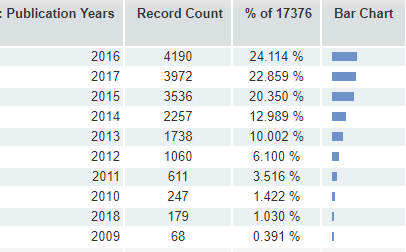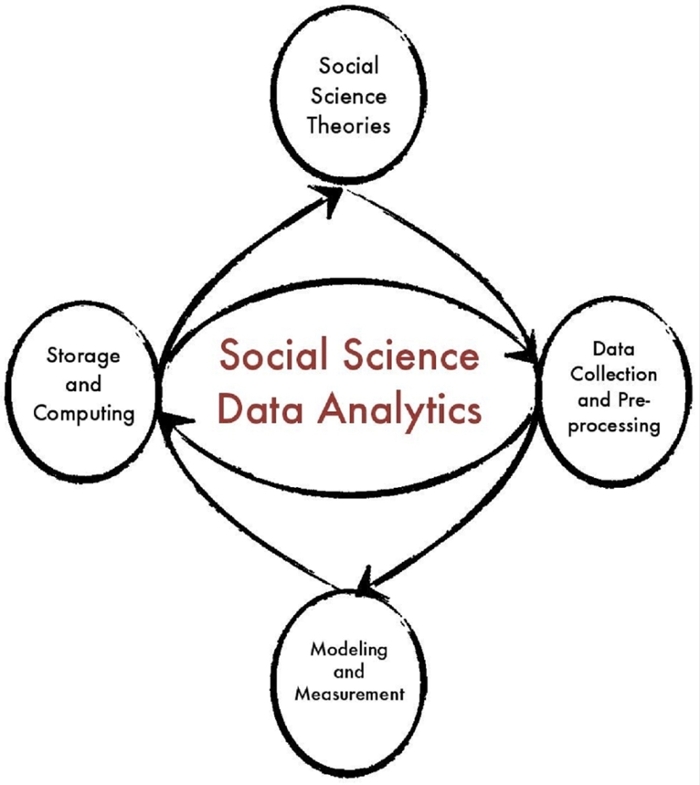About SSDA
Our Goal
SSDA provides a platform to inspire innovations in social science research by promoting data analytics.

Figure: More and more social science research articles on the topic of "social media" (database: Web of Science, 2018).
Except for social media, there are many other data sources that can be used to investigate numerous social science questions, such as Google Books, Congressional Records, campaign finance records, web-scraped information, and geographic and climate information.
Gaps and Needs
Across these exciting SSDA topics, it is apparent both that there are opportunities to improve social science research by more thoroughly utilizing the significant infrastructure the University community already provides (eg HPCC and iCER) and that there are several gaps in expertise that are common across research teams. For example, faculty members working on these topics across the college have articulated a common need for social scientists trained in applying Bayesian computation, machine learning approaches to prediction and model criticism to social science, causal inference for experiments and observational data, and interactive data visualization, areas where the college is lacking in expertise currently. The initiative does not aim to duplicate any of the existing strengths at MSU, but to extend them into new areas, while simultaneously connecting scholars around the college and university to effectively collaborate and produce high impact research.

Actions
The initiative has organized its efforts into three specific investments that are necessary to move MSU forward to be a leader in SSDA training and research.
The first investment is in personnel that will both organize and add to existing University strengths. We seek individuals that can work in and lead research teams comprised of both social scientists and data scientists, for example.
The second investment is a continuing series of speakers, workshops, social networking events, and incentives to (1) help faculty and graduate students accelerate existing research, and (2) connect scholars around the college and university to effectively collaborate and produce high impact research.
The third set of investments are in curricular developments that culminate in an undergraduate minor in SSDA and a graduate certificate program that will improve the tools training to our students.

